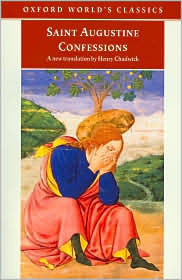Confessions Book Summary
TL;DR
Augustine's 'Confessions' is a profound autobiographical work reflecting on his life, struggles with sin, and philosophical inquiries that led to his conversion to Christianity, blending personal narrative with theological exploration.

Get full Book
What is Confessions about
Written in the late fourth century, Augustine's 'Confessions' is a pioneering work in Latin literature, offering deep insights into his early years, intellectual pursuits, and the transformative journey towards faith. Spanning 13 books, Augustine shares his memories, from infancy to his tumultuous adolescence filled with rebellion, friendships, and philosophical dilemmas. The text examines the human experience through a theological lens, engaging with ideas from classical authors and scripture, ultimately questioning the nature of God and humanity. This edition, translated by Henry Chadwick and Albert Cook Outler, is tailored for students and scholars, emphasizing Augustine's linguistic artistry and the significance of his theological reflections.
Confessions 5 Key Takeaways
The Nature of Sin
Augustine candidly discusses his past sins, illustrating the human condition and the struggle against desire. His reflections reveal the complexity of moral choices and the need for divine grace.
Intellectual Exploration
His early philosophical inquiries and encounters with various schools of thought, such as Manichaeism, demonstrate the search for truth and understanding that shapes his later theological insights.
The Role of Memory
Augustine emphasizes the importance of memory in shaping identity and understanding oneself in relation to God, suggesting that recollection is integral to spiritual growth.
Conversion Experience
The narrative culminates in Augustine's conversion, marking a pivotal moment where he reconciles his past with his newfound faith, demonstrating the transformative power of divine intervention.
The Problem of Evil
In grappling with the nature of God and the existence of evil, Augustine articulates profound philosophical dilemmas, laying the groundwork for future theological discourse.
Top Confessions Quotes
- You have made us for yourself, O Lord, and our hearts are restless until they rest in you.
- The mind commands the body and it obeys. The mind commands itself and it does not obey.
- Late have I loved you, Beauty so ancient and so new; late have I loved you.
Who should read Confessions?
This book is ideal for readers interested in philosophy, theology, and Latin literature. It offers insights into the complexities of faith, personal struggle, and the search for truth, inspiring individuals to reflect on their own journeys of self-discovery and spiritual growth.
Confessions Best Reviews
- The Confessions of Augustine is not just an autobiography; it's a profound reflection on the nature of human existence and divine grace, masterfully blending philosophy and personal narrative. - The New Yorker
- Augustine's lyrical Latin and theological insights make 'Confessions' a timeless classic that resonates with anyone on a journey of self-discovery and faith. - The New York Times Book Review
People also liked these summaries
Confessions FAQs
How many books are in Augustine's Confessions?
Augustine's 'Confessions' consists of 13 books, each detailing different stages of his life and philosophical development.
What is the main theme of Book 7 in Confessions?
In Book 7, Augustine explores his philosophical struggles leading to conversion, focusing on the nature of God and the problem of evil.